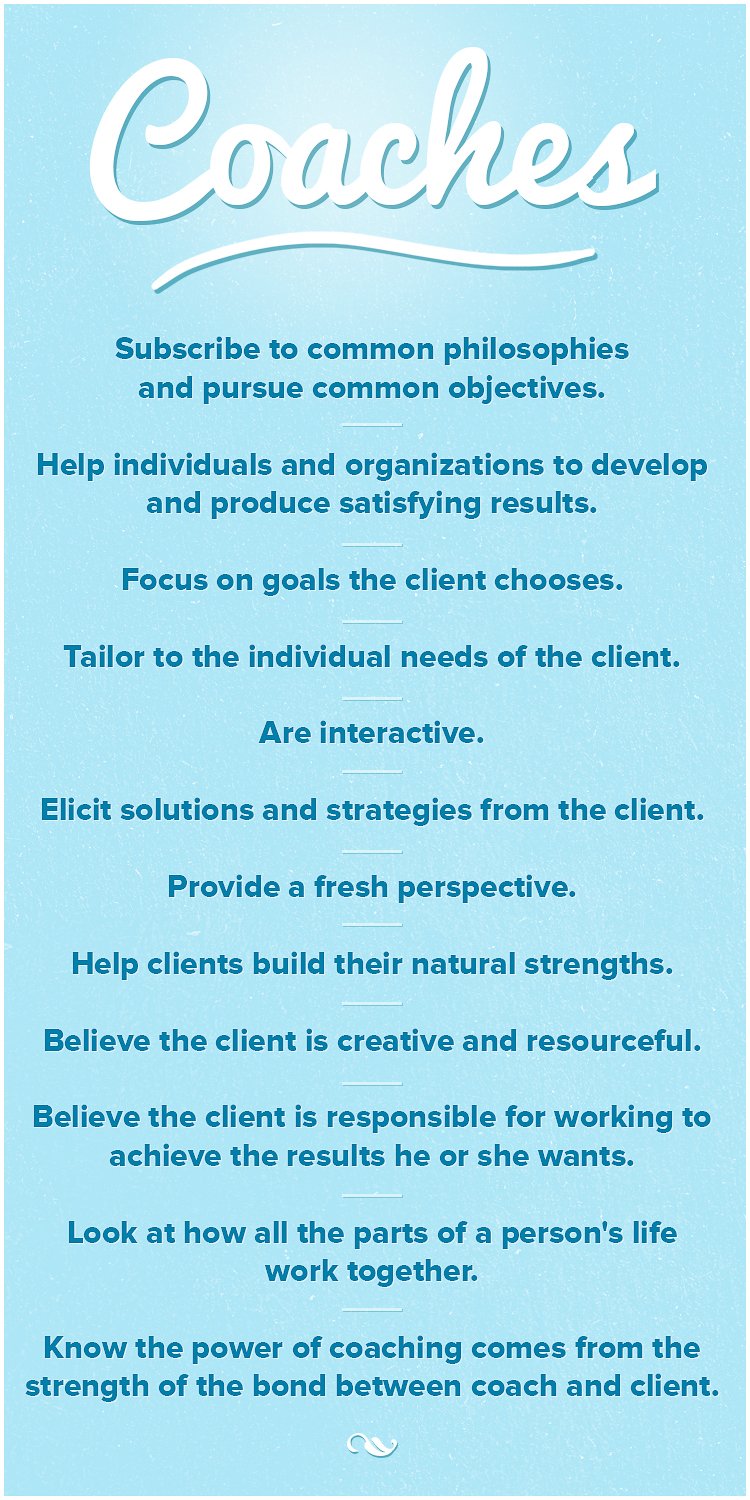Coaching vs. Therapy
(Image Credit: NLP)
What is Coaching?
From being a sports coach to an executive function coach to a life coach, the core of coaching is universal: to help an individual or group reach their potential, improve their performance or skills, and work towards their goals.
Regardless of the topic, coaches educate, model, guide, support, encourage, and knows when to - and when not to - provide a helpful push.
How is Coaching Different from Therapy?
Coaching and therapy both offer supportive, transformative spaces—but they serve different purposes. They might have small overlaps - and they certainly complement each other beautifully - but they have core differences in their training, approach, and focus.
Therapy is a clinical process led by licensed mental health professionals that focuses on healing emotional wounds, processing trauma, and treating mental health conditions by exploring a client’s past and present.
Coaching, on the other hand, is a non-clinical, forward-focused partnership that helps individuals clarify goals, build confidence, and take meaningful action toward personal or professional growth.
Here’s a metaphor to help explain this further:
Imagine you’re hiking up a mountain.
A therapist helps you unpack the heavy backpack you’ve been carrying—looking at what’s inside, how it got so heavy, and what you can let go of to feel lighter and freer.
A coach stands beside you on the trail, map in hand, asking where you want to go and helping you plan the best way to get there.
The therapist and coach offer the hiker different but both valuable services.
Do I Need a Coach or a Therapist?
Impossible to generalize, but potentially you need both! It depends on the situation and goals at hand. When in doubt, contact me to see what’s best for your situation. Also, I often work with individuals who are also working with therapists! For example, someone might work with me to develop a daily schedule, routine, and habits, and then work with their therapists for emotional support and coping mechanisms. Also, when appropriate, I will collaborate with a client’s therapist. “Clients can sign a release of information that allows the coach and counselor to share insights and updates, ensuring that efforts are not duplicated and that both approaches align. This collaboration fosters a holistic approach to treatment, where practical life skills and emotional healing processes complement each other.“
How Can Kanter Coaching Help You?
Coaching can help you:
Understand which life skills you might benefit from improving or addressing.
Create small, attainable goals.
Find strategies to support your daily needs.
Explore work - life - self-care balance.
Discover the ways you best learn and retain information.
Interior organize to create a physical environment that promotes organization, routine, and structure.
References
Ascher, M., & Ascher, L. (2024, May 11). Do I need an ADHD coach and a therapist?. Psychology Today. https://www.psychologytoday.com/us/blog/changing-the-narrative-on-adhd/202405/do-i-need-an-adhd-coach-and-a-therapist
Goldstein, L. (2021, August 28). What’s the difference between coaching and therapy? Montgomery County Counseling Center. https://mccounselingcenter.com/2021/06/29/whats-the-difference-between-coaching-and-therapy/
Maynard, S., & Main, B. (2022, March 28). Life coach or therapist: Who should you see First?. ADDitude. https://www.additudemag.com/life-coach-or-therapist-for-adhd/?srsltid=AfmBOoqt25urX0dWZl6hwAtg2xFwFnu5KXJUhN1Nc1KhmXR_E40gsk-h
What is a coach? Academy of Leadership Coaching & NLP. (2015, January 3). Retrieved from https://nlp-leadership-coaching.com/what-is-a-coach-graphic/

